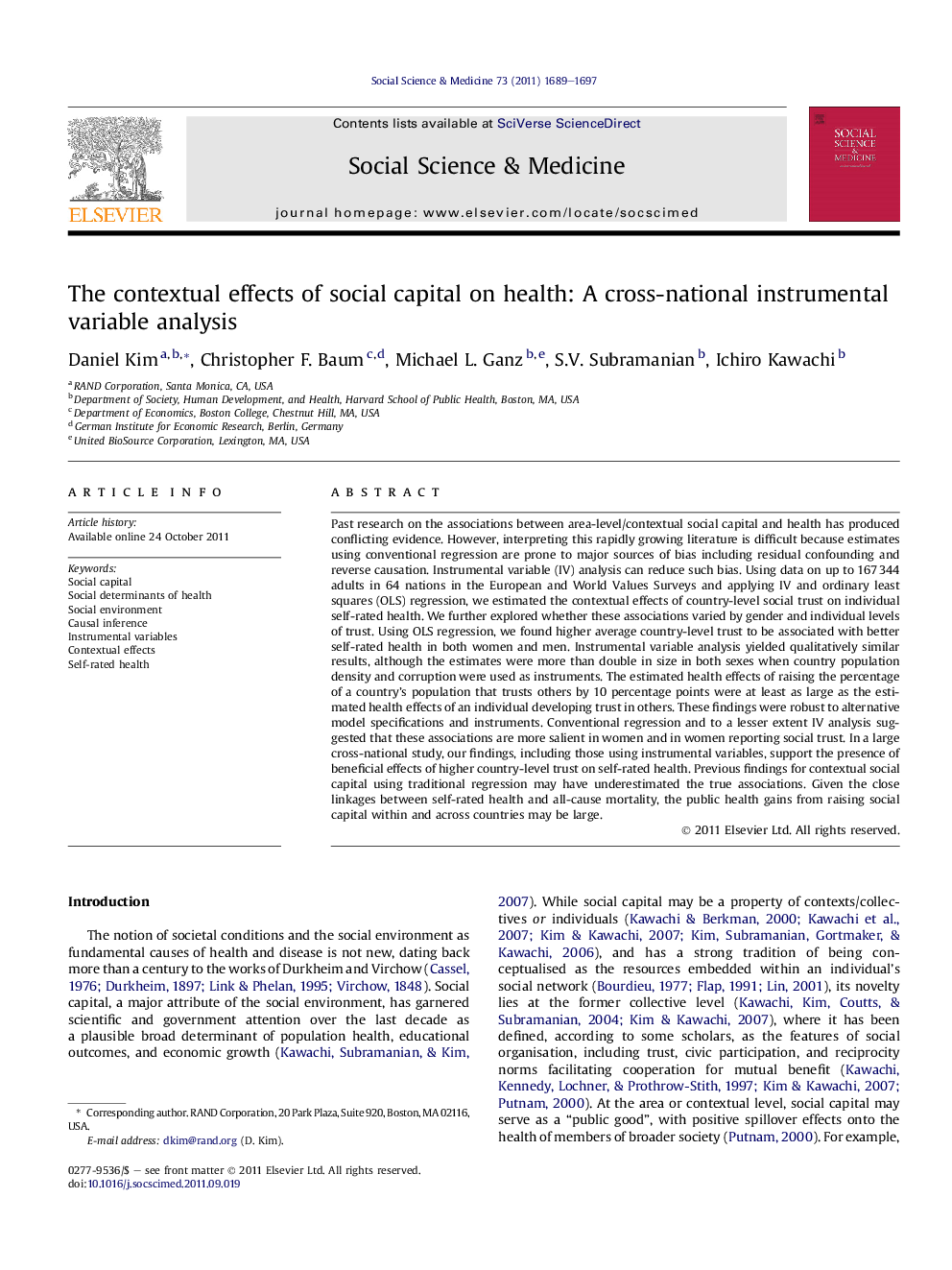| کد مقاله | کد نشریه | سال انتشار | مقاله انگلیسی | نسخه تمام متن |
|---|---|---|---|---|
| 952400 | 927512 | 2011 | 9 صفحه PDF | دانلود رایگان |

Past research on the associations between area-level/contextual social capital and health has produced conflicting evidence. However, interpreting this rapidly growing literature is difficult because estimates using conventional regression are prone to major sources of bias including residual confounding and reverse causation. Instrumental variable (IV) analysis can reduce such bias. Using data on up to 167 344 adults in 64 nations in the European and World Values Surveys and applying IV and ordinary least squares (OLS) regression, we estimated the contextual effects of country-level social trust on individual self-rated health. We further explored whether these associations varied by gender and individual levels of trust. Using OLS regression, we found higher average country-level trust to be associated with better self-rated health in both women and men. Instrumental variable analysis yielded qualitatively similar results, although the estimates were more than double in size in both sexes when country population density and corruption were used as instruments. The estimated health effects of raising the percentage of a country’s population that trusts others by 10 percentage points were at least as large as the estimated health effects of an individual developing trust in others. These findings were robust to alternative model specifications and instruments. Conventional regression and to a lesser extent IV analysis suggested that these associations are more salient in women and in women reporting social trust. In a large cross-national study, our findings, including those using instrumental variables, support the presence of beneficial effects of higher country-level trust on self-rated health. Previous findings for contextual social capital using traditional regression may have underestimated the true associations. Given the close linkages between self-rated health and all-cause mortality, the public health gains from raising social capital within and across countries may be large.
► Past research on the associations between area-level/contextual social capital and health has produced conflicting evidence.
► Interpreting this growing literature is limited because estimates using conventional regression methods are prone to endogeneity bias including residual confounding and reverse causation.
► Our findings using both instrumental variable analysis to reduce bias and traditional regression suggest that raising average levels of country social trust may improve individual self-rated health.
► Estimates from instrumental variable analysis were substantially larger in magnitude, indicating that previous findings for contextual social capital may have underestimated the true associations.
► Based on the population attributable fraction, nearly 287 000 deaths/year across 40 nations could be avoided by raising the percentage of each country's population that trusts others by 10–20%.
Journal: Social Science & Medicine - Volume 73, Issue 12, December 2011, Pages 1689–1697